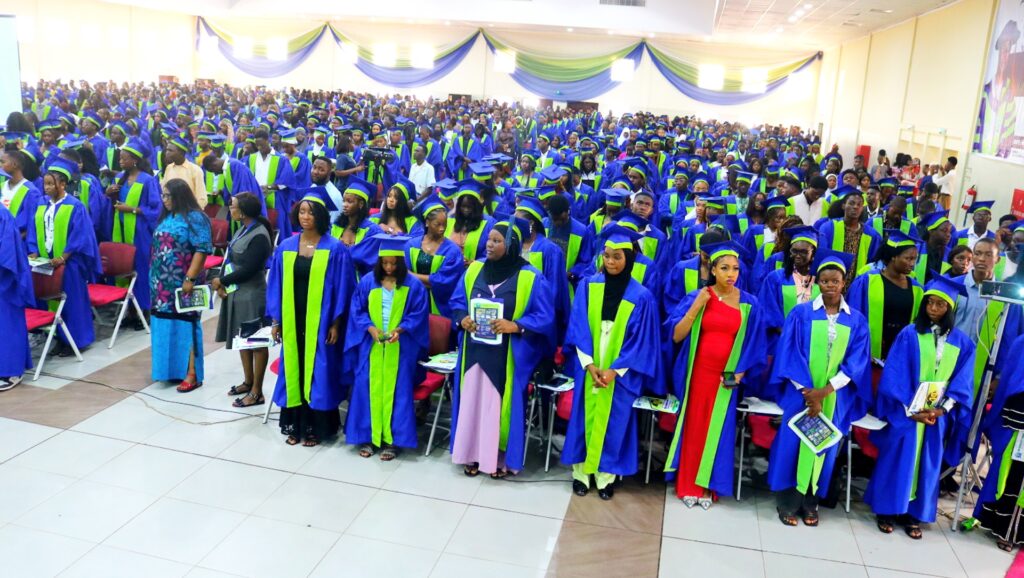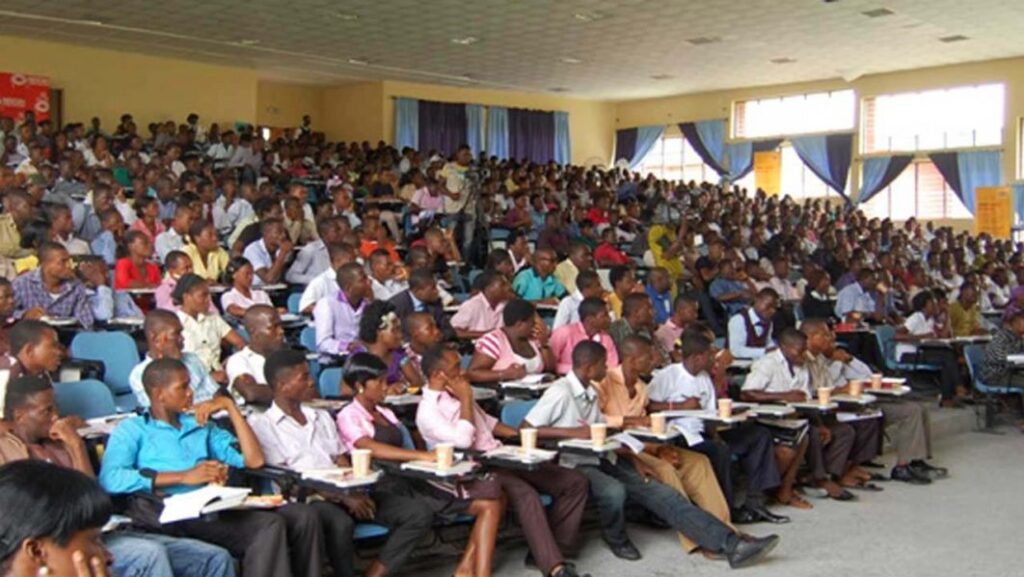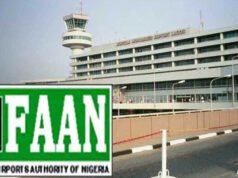As Nigeria’s tertiary education sector continues to expand rapidly—with over 270 universities nationwide—it faces a mounting university staffing crisis. Overcrowded lecture halls, systemic underfunding, and mass academic staff departures have pushed student‑staff ratios far above international norms. The consequences for learning quality and institutional reputation are profound.
Table of Contents

Growing Numbers, Shrinking Capacity
Nigeria now hosts approximately 270 universities, both public and private, with a combined student population exceeding 1.5 million. However, the surge in enrolment has not been matched with adequate staffing. Federal universities, which alone account for nearly one million students, have only about 16,856 academic staff on record, at least 5,000 short of the required complement. To meet demand, the National Universities Commission (NUC) estimates the system needs around 21,912 lecturers, but the current pool falls well below that threshold.
At the University of Lagos (UNILAG), one of Nigeria’s flagship institutions, academic staffing has become dire. With more than 50,000 students and only about 1,200 academic staff, the student‑staff ratio has ballooned to around 1 : 60—well beyond global benchmarks of 1 : 16.
Benchmark Standards Ignored
Nigeria’s official academic standards—known as the Benchmark Minimum Academic Standards (BMAS)—stipulate ideal staff‑student ratios depending on academic discipline: for instance, 1 : 20 for sciences, 1 : 15 for engineering and agriculture, 1 : 10 for medicine, and 1 : 30 for management, social sciences, law, and arts. Yet, none of the major institutions come close to meeting these targets. Nationally, student‑faculty ratios hover near 1 : 100 or above in several schools, making hands‑on teaching and meaningful supervision all but impossible.

Financial Decline Fuels Exodus
Underlying this crisis is a chronic underinvestment in higher education. In 2023, federal universities received less than 60 percent of their budget requirements—an education budget that already falls far short of UNESCO’s recommended 26 percent of national spending. Rampant underfunding has translated into dilapidated laboratories, outdated libraries, overcrowded classrooms, and roofless lecture theatres.
Working conditions for academic staff have deteriorated significantly. A case study at Ahmadu Bello University revealed that lecturers sometimes teach 400 to 500 students at once without a public address system, and many are forced to earn supplementary income through second jobs to survive financially. The low remuneration of lecturers, especially compared with peers in neighboring countries, has accelerated brain drain: many Nigerians in academia are emigrating in search of better opportunities abroad.
The Human Cost: Strikes, Attrition, Anger
Academic staff attrition has surged alarmingly. At UNILAG alone, more than 1,800 lecturers reportedly left over five years, citing poor conditions and low pay—a situation made worse even as the government approved over 60 new universities during that time, exacerbating pressure on remaining faculty.
Strikes by the Academic Staff Union of Universities (ASUU) have become the default response to unmet demands. Between 1999 and 2022, ASUU engaged in numerous nationwide walkouts—as long as eight months—disrupting academic calendars and at times cutting exit semesters short. These recurring stoppages have left students in limbo, undermined research continuity, and inflicted lasting damage on institutional credibility.
Consequences for Learning and Reputation
The fallout is severe:
- Compromised-quality education: Overcrowded lecture halls and limited faculty engagement reduce learning to passive didactic experiences. Laboratory and clinical training, particularly in medical and engineering programs, often resort to observation rather than hands-on participation.
- Poor postgraduate supervision: With few professors and senior lecturers available, graduate mentorship suffers. Only 12 percent of university staff nationwide are full professors—far short of the NUC’s recommendation that a quarter of lecturers should hold that rank.
- Declining global rankings: Major universities like UNILAG now appear in the 1001–1200 bracket of Times Higher Education’s global rankings, reflecting both insufficient academic staffing and recurring institutional disruptions.
- Adjunct lecturer overreliance: Institutions attempt to fill gaps with part-time adjuncts, including international experts, especially during virtual learning phases. While these individuals offer expertise, they often lack long-term commitment and continuity.
Root Causes: Policy, Proliferation, Neglect
Several systemic drivers lie behind this crisis:
- Unregulated university proliferation: The government approved dozens of new universities, even as existing ones struggle to retain staff. This dilution of limited faculty capacity is a key factor in the widening ratio gap.
- Fiscal neglect: Government spending on education remains far below global norms. Political priorities have relegated tertiary education to low-budget status, undermining infrastructure and staff motivation.
- Failure to enforce BMAS: Though benchmark standards exist, enforcement mechanisms are weak. Many institutions operate overweight, even though they consistently fail to meet BMAS staffing targets.
- Brain drain and strike culture: With stagnant or declining real salaries, many lecturers migrate overseas. Strikes compound instability and drive away potential hires, creating a vicious cycle.
Spotlight: UNILAG’s Precarious Scenario
UNILAG illustrates the broader national predicament. As academic staff fled, it resorted to online modes and adjunct lecturers during renovations and academic disruptions in the 2024/25 session. Though necessary, this shift exposed technology gaps—some classes had more students than permitted capacity on Zoom, leading to unstable attendance and poor engagement. Many students complained of dropouts during live lectures or freezing streams, impacting continuity.
UNILAG’s vice-chancellor acknowledged that the high reliance on virtual learning stemmed largely from staff shortages and hostel renovation logistics. While adjunct lecturers may offer industry insight, they cannot replace consistent supervision, especially for practical disciplines.
Looking Ahead: Urgent Actions Required
To avert further decline and restore academic integrity, policymakers and university management must act fast. Key recommendations:
- National recruitment drive: Launch a sustained effort to recruit thousands of academic staff, with priority for critical disciplines. Bridge the gap between existing personnel and BMAS-defined norms.
- Enforce BMAS compliance: Strengthen accreditation mechanisms to ensure institutions meet benchmark ratios before licensing or expansion.
- Boost funding: Elevate tertiary funding toward UNESCO’s 26 percent benchmark and ensure distribution meets staffing and infrastructure needs.
- Improve lecturer welfare: Review salary scales (e.g. HATISS) to reflect living costs and professional expectations; curb brain drain with retention incentives.
- Strategic university licensing: Pause approvals for new universities until existing ones demonstrate compliance with the ratio and infrastructure standards.
- Promote adjunct continuity: Where adjunct lecturers are deployed, formalise contracts to ensure sustained engagement and accountability.

Conclusion
Nigeria’s university staffing crisis is no longer an abstract inefficiency—it is a national emergency. As student numbers surge, staffing has not kept pace, leaving more institutions teetering on the brink of collapse by academic standards. With student‑staff ratios elevated to as high as 1:60—far exceeding the ideal 1:16 benchmark—the system’s capacity to deliver quality higher education is in jeopardy.
Unless swift, comprehensive reforms restore balance through increased funding, bold recruitment, and enforced academic standards, Nigeria risks producing graduates unfit for international competition and losing its remaining global academic credibility.
Join Our Social Media Channels:
WhatsApp: NaijaEyes
Facebook: NaijaEyes
Twitter: NaijaEyes
Instagram: NaijaEyes
TikTok: NaijaEyes
READ THE LATEST EDUCATION NEWS





